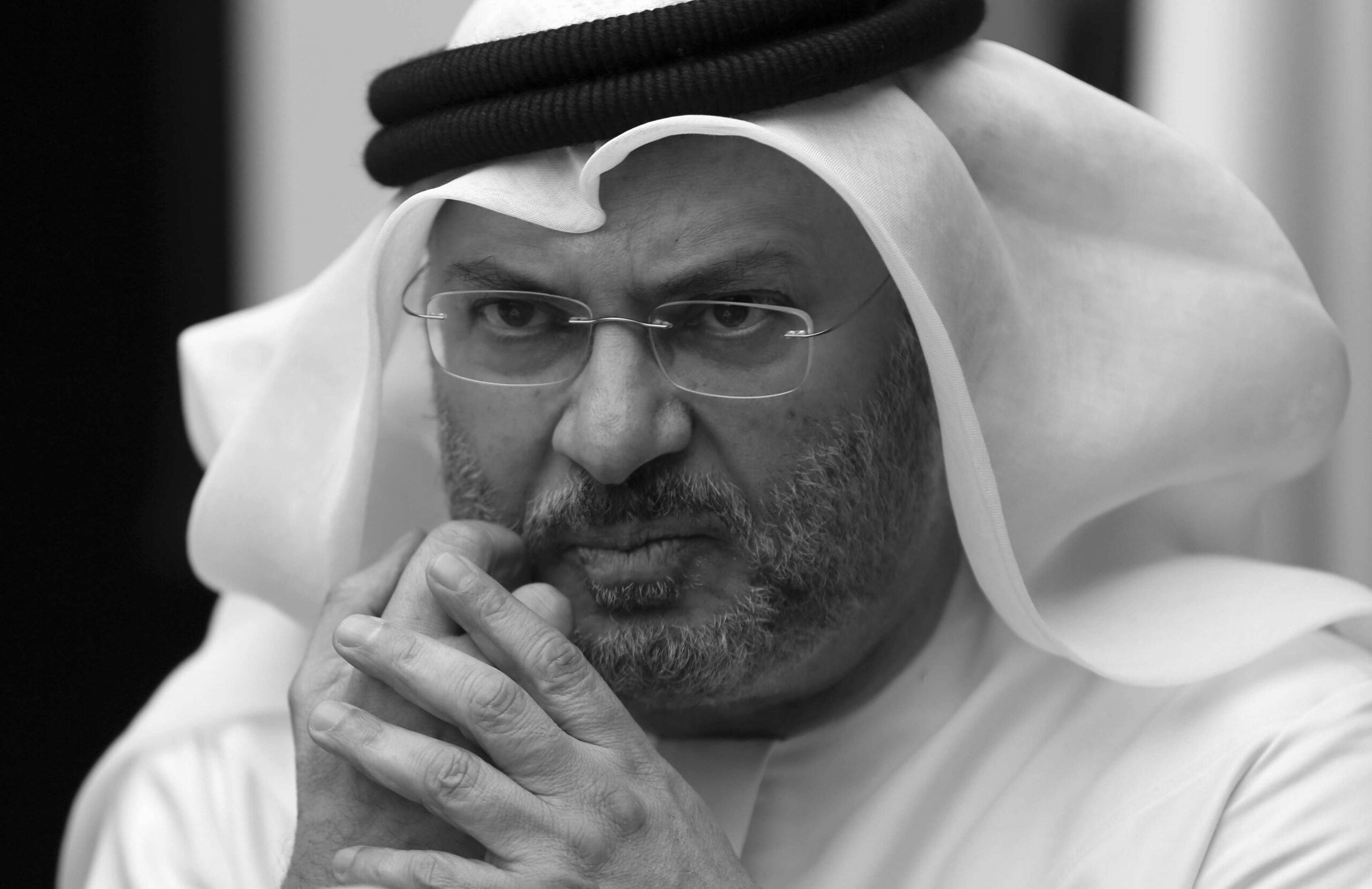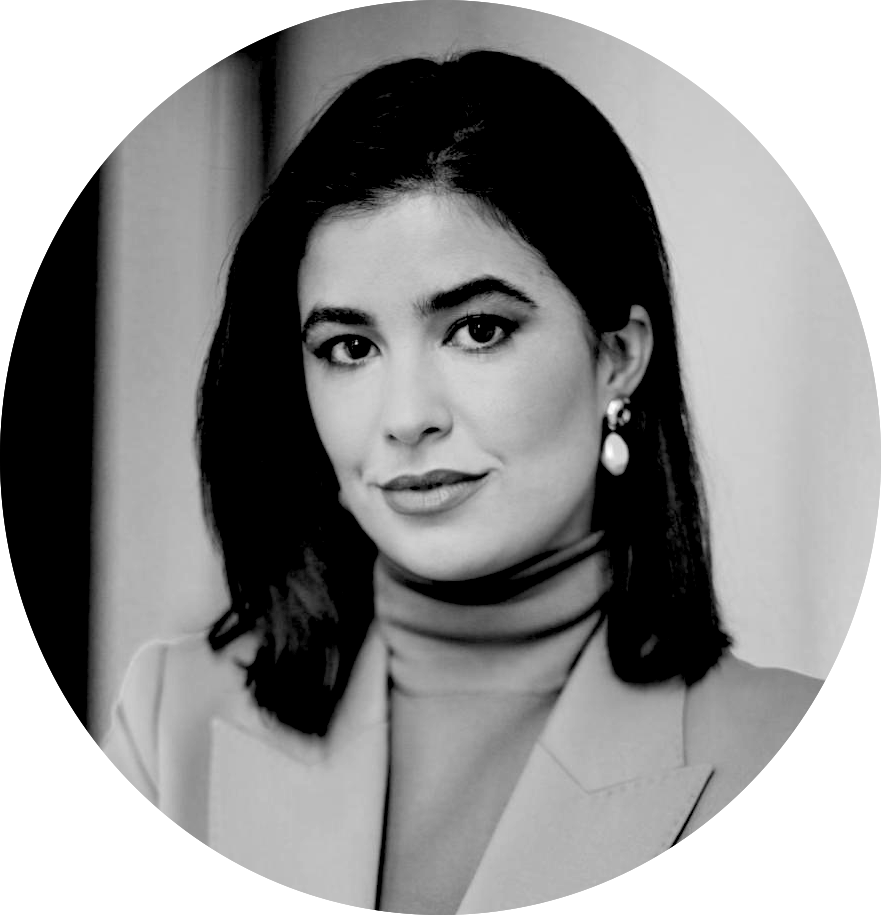Israel, Iran and the New Geopolitics of the Gulf: A Conversation with Anwar Gargash
Maria Tadeo
Grand Continent EU Correspondant14/06/2025

Israel, Iran and the New Geopolitics of the Gulf: A Conversation with Anwar Gargash

Maria Tadeo
Grand Continent EU Correspondant14/06/2025

 Voir tous les articles
Voir tous les articles
Israel, Iran and the New Geopolitics of the Gulf: A Conversation with Anwar Gargash
His excellency Dr Anwar Gargash is diplomatic advisor to the President of the United Arab Emirates
Israel has struck Iran, opening a new front of escalation in the Middle East. What is your assessment?
Welcome to the Middle East.
We were all very struck by the news that we saw unfolding overnight. The United Arab Emirates was quick to issue a condemnation of the Israeli attack on Iran. We understand that there are serious issues in the region, but we are big believers that these issues have to be resolved politically and diplomatically no matter how complicated. In our region, we have seen in the past that using the hammer alone to address the complex dynamics of the Middle East does not work. There is a real concern about escalation as a result of the Israeli attack on Iran and there are also real concerns around the Iranian nuclear programme, which we believe have to be addressed politically and diplomatically. The biggest question is what type of escalation comes next and the repercussions it will bring.
We are still trying to address the Palestinian- Israeli issue in the wake of a brutal war on Gaza. There is also Lebanon and Syria. These are open wounds. The last thing we need today is this level of unprecedented escalation in targeting Iranian officials and Iranian infrastructure.
In the region, certainly in the Gulf, the emphasis is on putting behind military solutions for complicated, long-term political issues. This is a very serious, troubling moment.
Does the region risk plunging into an all-out conflict?
Military solutions will only complicate the geostrategic scene. After two years of war in Gaza, there is no way out. We need a political roadmap that will bring stability, not escalation.
The concerns about Iran’s nuclear programme are not new, this has been an issue for more than a decade. I believe President Trump has been courageous and wants to open an avenue for discussion, which we know is going to be difficult and arduous. But from the Gulf’s perspective, we insist a political solution by diplomatic means is the only way forward.
I am not sure that Israel’s attack on Iran will offer any solutions.
The timing of the strike is particularly relevant as President Trump was in the midst of negotiations with Iran. After last night, can a deal be reached or is it effectively over?
It is all up in the air.
A military solution will not address the serious concerns of the region; Iran’s nuclear programme is a serious concern. Right now, we have a foot in the past, which is trying to solve these issues through military action, but the lessons of Iraq in 2003 and 2003, and even the situation that we see in Gaza today, show us time and time again that this cannot be solved by force alone. The cost of using military force for geostrategic change comes with too high a price. But we can also step into the future. This is what the UAE is doing. That means prioritizing diplomacy, humanitarian and economic progress.
At this moment, it is very difficult to have a clear view because there are still many scenarios that could play out in the next few days. It is very difficult to predict what will happen in the next two weeks. We do not see how escalation can help the region – on the contrary – but it is much too early to say whether the possibility of a nuclear deal has disappeared as a result of Israel’s attack on Iran. It would be very speculative. We are still trying to assess the Iranian response.
Some argue this isn’t about stopping Iran from securing a nuclear bomb, but instead the Netanyahu government is looking to create the necessary conditions for regime change within Iran. Would you agree with that assessment – the goal is regime change?
We have seen in many instances that when a nation feels attacked, nationalism rises. We cannot preclude that scenario. The sense of your question goes back to my initial point: you cannot reshape the region through belligerent force. You might resolve some issues, but it will create counter issues. We have to look at the history of the Middle East and the lessons of the past 20 years. Using military force is not an instant solution. The truth is that I am very concerned about these developments.
Prior to October 7th, Israel and the Arab world were headed toward an unprecedented process of recognition and normalization. Is that process finished?
The UAE condemned the Hamas attack on October 7th. At the same time, we are seeing the disproportionate response of the Israelis many times over destroying Gaza. What we are very disappointed in is that, clearly from day one, there has been no outlook for what happens after. What comes the day after? All we see is a continuing war. Places that were bombed, have been bombed again. People who have been uprooted from their homes, who are being moved from place to place and now live in a tent. About 55,000 Palestinians who have lost their lives.
The UAE is part of the Arab consensus centered around the creation of Palestinian state. That is the main piece of the jigsaw. Even though the land that would serve for the construction of the Palestinian state has been obliterated by the Israeli army, we firmly believe in it as the political solution to this war. What is their vision? They have offered none. The whole idea is moving Palestinians to some far away lands…that is not going to happen. This is an ideological pipedream of Prime Minister Netanyahu. This will never be acceptable, even the thought of it, to the Arab World.
When we signed the Abraham Accords, one of the areas that was important for us was the capacity to help the people of Gaza through our relationship with Israel. Now, the reputation of the Abraham Accords has been stained as a result of this war for over two years. The Palestinian people have a right to an independent, secure state. Regardless of what people say – whether it’s doable or not – there is no other alternative. I have not seen one.
I must also say that in my meetings with Jewish associations, unrelated to the government, they have also said this. Many have empathized to me that what we’re seeing from the right-wing Israeli government does not represent the whole of Israel. But Israel has to understand its relation with the Arab World is hinging around the political perspective for the Palestinian people.
The government of Netanyahu has not indicated it is willing to contemplate in serious terms the idea of the two-state solution. It has also struck Iran forcefully and precisely. What’s the end game?
My first fear, and I don’t want to jump to conclusions, is that this is part of an escalatory momentum. My second fear is the potential repercussions in the long-term. Israel acted very tactically, but not strategically, in Syria for example. There was an opening with the new Syrian regime to show it is not the enemy but Israel didn’t take it. The region is trying to turn the page. We don’t want anyone dragging back into conflict. At the end of the day, the Netanyahu government is the government of Israel today. We have to deal with the government of the day. But the region is dealing with too many complications that it doesn’t need.
citer l'article
Maria Tadeo, Israel, Iran and the New Geopolitics of the Gulf: A Conversation with Anwar Gargash, Jun 2025,




